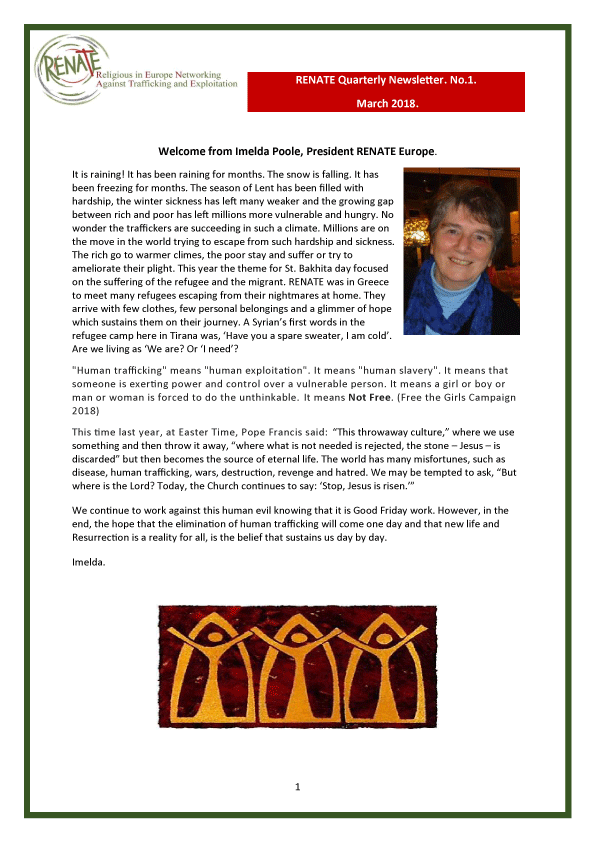At a celebratory dinner held in London last night (22 November, 2018), donors and friends of RENATE gathered to mark the occasion of the President being awarded an MBE.
It was an inspiring and supportive event to celebrate this special honour which Imelda has accepted on behalf of RENATE and sisters working to combat human trafficking around the world.

In their honour, guests at the dinner made financial contributions to support the work of RENATE.
Imelda shared the story of her life thus far and the story of RENATE as a firmly established network of Religious, collaborating in a myriad of ways in working against human trafficking and exploitation. A striking statement which struck a chord with everyone was that ‘’…ours is a Mission of Presence, with humility as a core source of our Mission. We work with people fallen off the edge. There is where we are called to set up new communities, outside the boundaries.’’
Two RENATE Working Board members present, Adina Balan, cj, and Ms. Ana Stakaj, shared about cross-border rescue work and activities at grass-roots level respectively. Adina spoke of her struggles against all odds in Romania, to provide for and ensure assistance to young women and girls who are survivors of human trafficking and violence. In this regard, she instanced the capacity of RENATE as a network responding across borders whereby RENATE members in the UK provide shelter and agency in response to her call. Adina’s parting words resonated with everyone as she said ‘’Some people are alive today because RENATE exists, being there at the right time.’’

Ana Stakaj shared about the various actions underway in Albania, amongst which is the setting up of a Citizen’s Advice Centre where MWL provide Emergency Support and assistance in negotiating with social services in order that survivors of human trafficking, can live independent and dignified lives. In doing so, she spoke of ‘’…trying to break the chains of poverty and domestic violence.’’ People were very interested to hear Ana speak about the myth of migration that abounds amongst youth in Albania. Many aspire to leave the country in order to find a better quality of life, describing the UK, the USA and Canada as the ‘promised lands’ in their eyes.
The function concluded with congratulations extended to Imelda and to all at RENATE, with pledges of continued support and prayers into the future.
Anne Kelleher, RENATE Communications Person.

.png)











